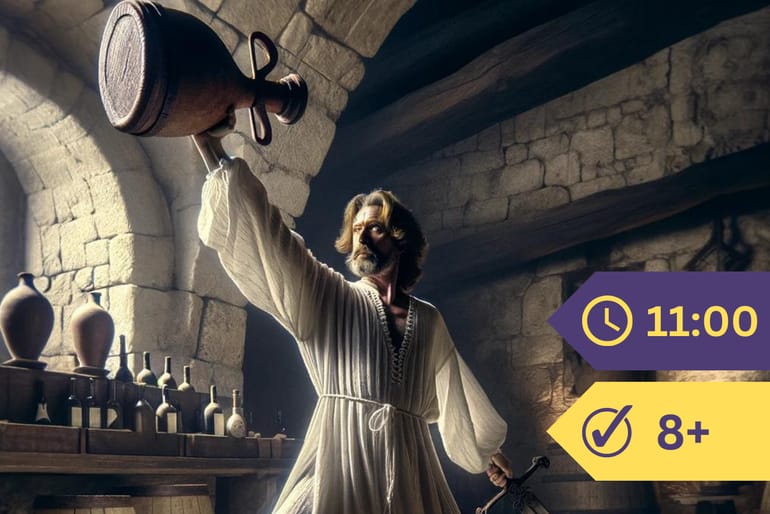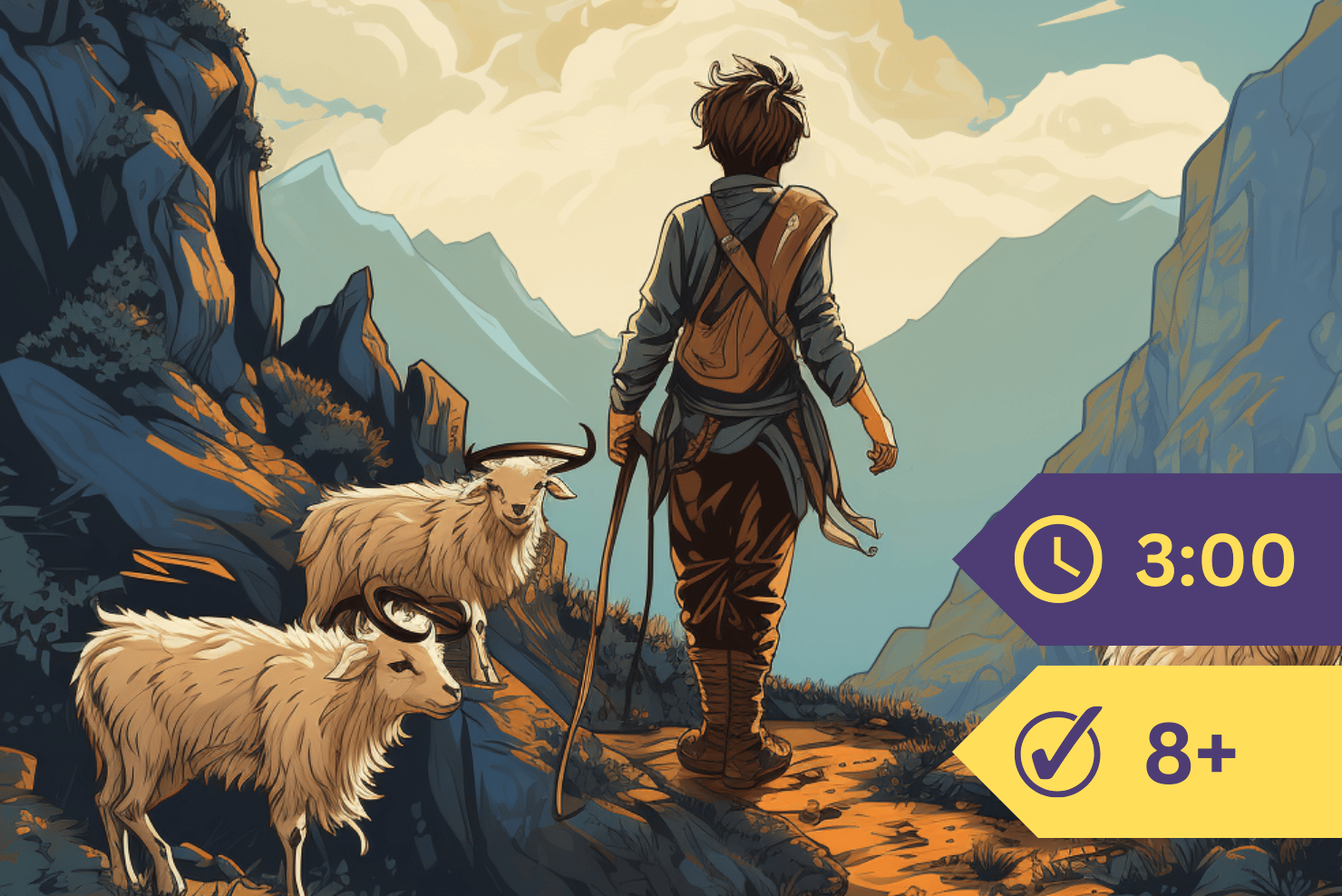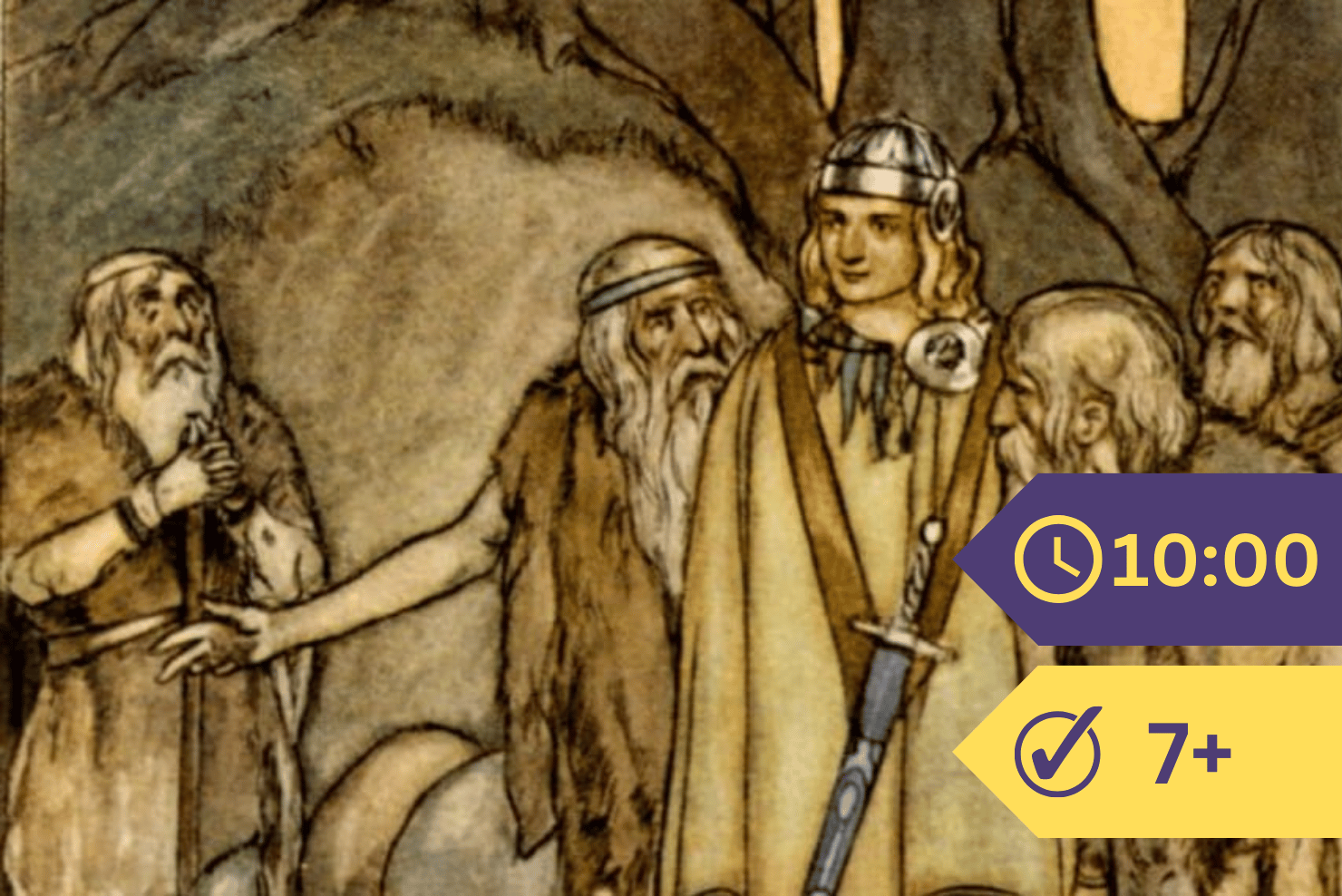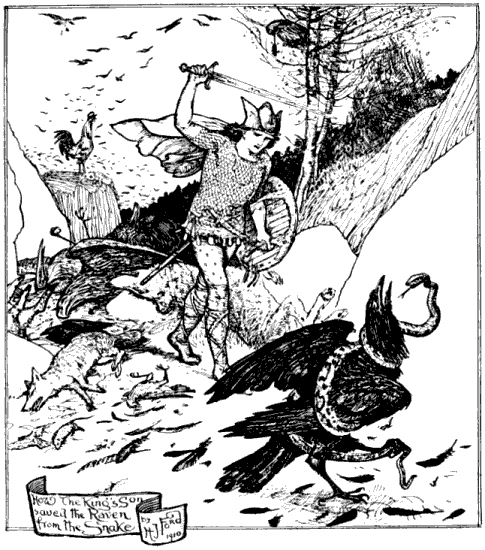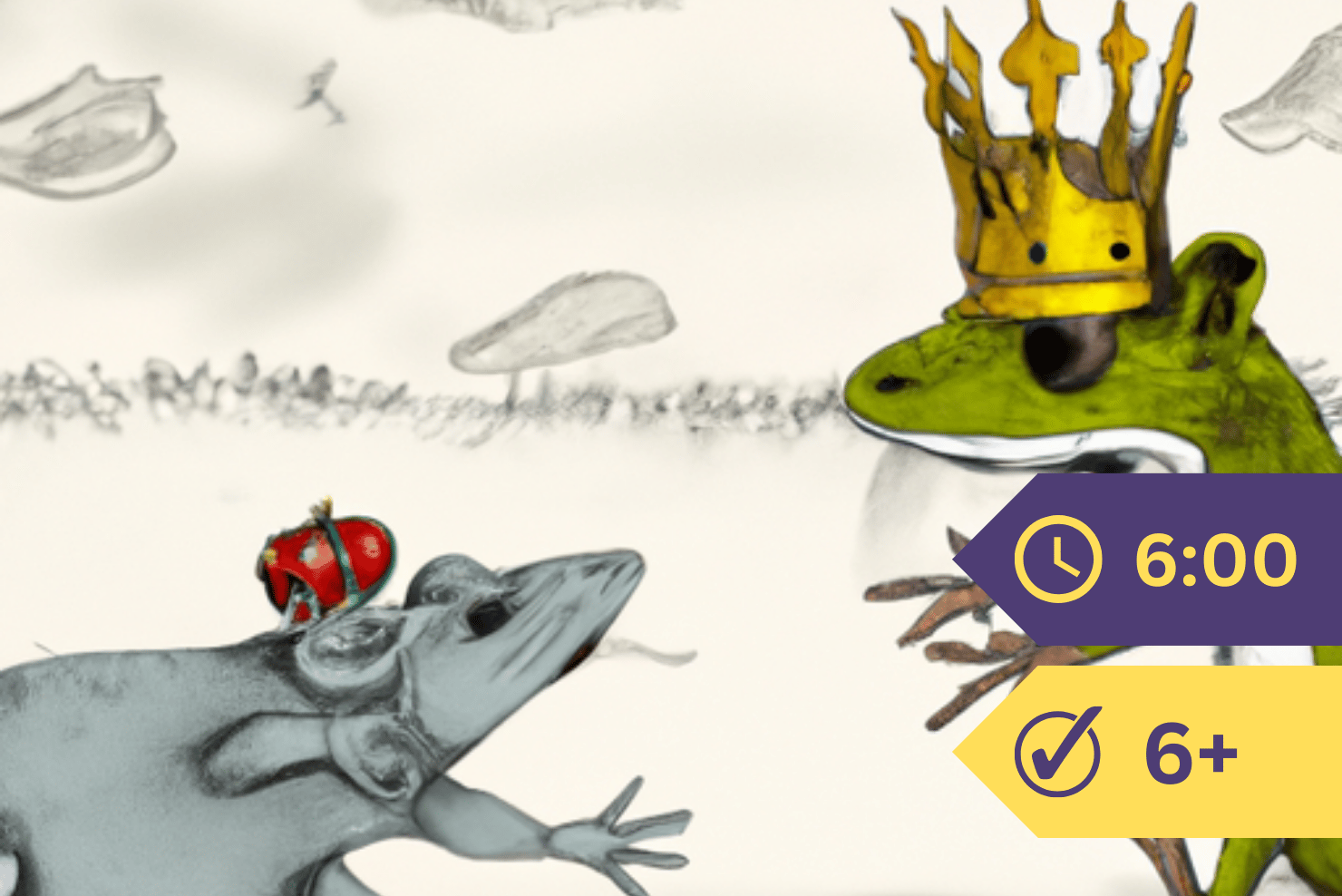When they had finished their dinner, they saddled and went to horse once more, and travelled all that day and the next without any adventure of note, until they arrived at the inn, which was the dread and terror of Sancho Panza, and though he would rather not have entered it, yet he could not avoid doing so. The innkeeper, the hostess, her daughter, and Maritornes, seeing Don Quixote and Sancho return, went out to meet them with tokens of great love and joy. The knight returned their compliments with grave courtesy, and bade them prepare a better bed than they gave him the last time.
“Sir,” said the hostess, “if you would pay us better than the last time, we would give you one fit for a prince.”
Don Quixote answered that he would, and they prepared a reasonable good bed for him in the same room where he lay before. Then he went off to bed at once, because he was tired and weary, both in body and mind.
Don Quixote was still asleep when the dinner was served, and during dinner—the innkeeper, his wife, his daughter, and Maritornes being there, as well as all the travellers—they talked of Don Quixote’s strange craze, and of the state in which they had found him. The hostess told them of what had happened between him and the carrier, and glancing round to see if Sancho were present, and not seeing him, she told them the story of his being tossed in the blanket, to the no small entertainment of all the company.
The curate told him it was the books of knighthood that Don Quixote had read that had turned his head.
“I know not how that can be,” said the innkeeper, “for to my thinking, there is no finer reading in the world; and when it is harvest-time, the reapers here often collect during the midday heat, and one who can read takes one of these books in hand, while some thirty of us get round him, and sit listening with so much delight that I could find it in my heart to be hearing such stories day and night.”
“And I think well of them, too,” said the hostess, “for when the reading is going on, you are so full of it that you forget to scold me, and I have a good time of it.”
“Ah,” said her daughter, “I too listen, and though I like not the fights which please my father, yet the lamentations which the knights make when they are away from their ladies make me weep for pity, and I enjoy that.”
“We have need here,” said the curate, “of our friends, the old woman and the niece. Beware, my good host, of these books, and take care that they carry you not on the road they have taken Don Quixote.”
“Not so,” said the innkeeper, “I shall not be such a fool as to turn knight-errant; for I see well enough that it is not the fashion now to do as they used to do in the times when these famous knights roamed about the world. All that is of no use nowadays.”
Sancho came in in the midst of this, and was amazed to hear them say that knights-errant now were of no use, and that books of knighthood were full of follies and lies, and he made up his mind to see the end of this voyage of his master, and if that did not turn out as happily as he expected, to return home to his wife and children and to his former labours.
At this moment a noise came from the room where Don Quixote was lying, and Sancho went hastily to see if his master wanted anything.
In a few moments he returned, rushing wildly back, and shouting at the top of his voice: “Come, good sirs, quickly, and help my master, who is engaged in one of the most terrible battles my eyes have ever seen. I swear he has given the giant, the enemy of my lady, the Princess Micomicona, such a cut, that he has sliced his head clean off like a turnip.”
“What sayest thou, friend?” said the curate. “Art thou in thy wits, Sancho? How can it be as you say, when the giant is at least two thousand leagues from here?”
By this time they heard a marvellous great noise within the chamber, and Don Quixote shouting out: “Hold, thief, scoundrel, rogue! now I have thee, and thy scimitar shall not avail thee!”
And it seemed as if he were striking a number of mighty blows on the walls.
“Do not stand there listening,” cried Sancho, “but go in and part the fray, or aid my master. Though I think it will not now be necessary, for doubtless the giant is dead by now, and giving an account of the ill life he led; for I saw his blood was all about the house and his head cut off, which is as big as a great wine-bag.”
“May I be hewed in pieces,” cried the innkeeper on hearing this, “if Don Quixote has not been slashing at one of the skins of red wine that are standing filled at his bed head, and the wine that is spilt must be what this fellow takes for blood.”
So saying he ran into the room, and the rest followed him, and found Don Quixote in the strangest guise imaginable. He was in his shirt, which did not reach to his knees. His legs were very long and lean. On his head he wore a greasy red nightcap which belonged to the inkeeper. Round his left arm he had folded the blanket from off his bed, at which Sancho gazed angrily, for he owed that blanket a grudge. In his right hand he gripped his naked sword, with which he laid round about him with many a thwack, shouting out as if indeed he was at battle with some terrible giant. The best sport of all was that his eyes were not open, for he was indeed asleep, and dreaming that he was fighting a giant. For his imagination was so full of the adventure in front of him that he dreamed that he had already arrived at Micomicon, and was there in combat with his enemy; and he had given so many blows to the wine-bags, supposing them to be the giant, that the whole chamber flowed with wine.
When the innkeeper saw this, he flew into such a rage that he set upon Don Quixote with his clenched fist, and began to pummel him, so that if Cardenio and the curate had not pulled him off, he would have finished the battle of the giant altogether. In spite of this, the poor knight did not awake until the barber got a great kettleful of cold water from the well, and threw it right over him, when Don Quixote woke up, but even then did not understand where he was.
As for Sancho, he went up and down the floor, searching for the giant’s head, and seeing he could not find it, said: “Now I know that everything I see in this house is enchanted, for this head is not to be seen here, though I myself saw it cut off with my own eyes, and the blood running from the body as from a fountain.”
“What blood or what fountain dost thou cackle of here?” cried the innkeeper. “Thou thief! dost thou not see that the blood and the fountain is no other thing but the wine-bags which are ripped open, and the red wine which swims up and down the room?”
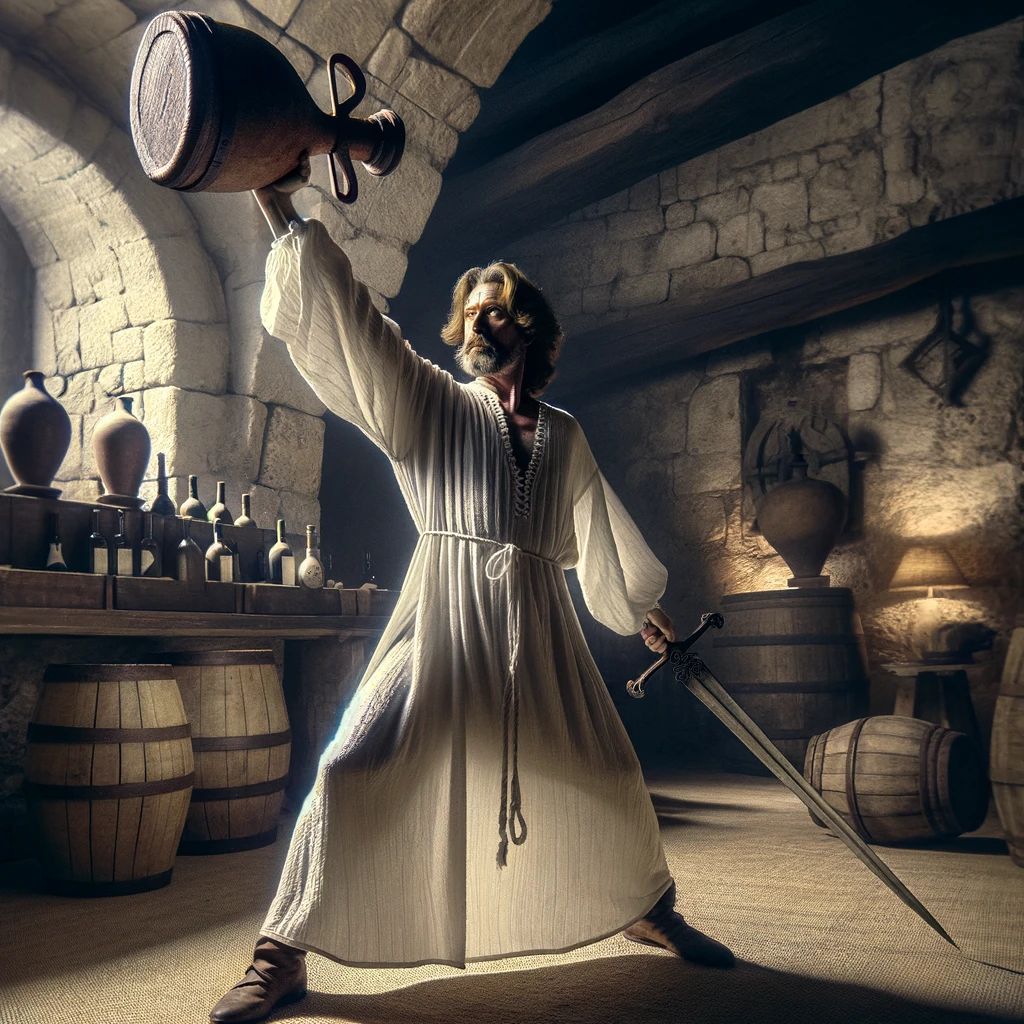
“I know nothing but this,” replied Sancho, “that if I cannot find the giant’s head, my earldom will dissolve like salt cast into water.” For indeed Sancho awake was worse than his master asleep, so greatly had his master’s promises turned his brain.
The innkeeper was at his wits’ end at seeing the stupidity of the squire and the mischief done by his master, but he determined that they should not as before go away without paying; that knighthood should be no excuse for this, and he would make them pay for the very patches in the wine-skins that had been ruined.
All this time the curate was holding Don Quixote’s hands, who, believing that he had finished the adventure and was in the presence of the Princess Micomicona herself, fell on his knees before the curate, and said: “Your highness, exalted and beautiful lady, may live from henceforth secure from any danger that this wretched giant might have done to you; and I am also freed this day from the promise I made to you, seeing that I have with the assistance of her through whose favour I live and breathe, so happily completed my labour.”
“Did I not say so?” cried Sancho, hearing his master. “I was not drunk. My master has salted the giant down this time, and my earldom is secure.”
Who could help laughing at the follies of the two, master and man? All of them laughed except the innkeeper, who burst out into fits of anger ten times worse than before.
At length the barber, Cardenio, and the curate managed, not without much ado, to get Don Quixote to bed again, and presently left him sleeping, with every sign of being worn out. They let him sleep, and went out to comfort Sancho Panza, whose grief was great at not finding the giant’s head. But they had more to do to pacify the innkeeper, who was almost out of his wits at the sudden death of his wine-skins.
His wife, too, was running up and down, scolding and crying out: “Alas, the unlucky hour when this knight-errant came to my house! Would that mine eyes had never seen him, for he has cost me dear. The last time he was here he went away scot free for his supper, bed, straw, and barley for himself, his man, his horse, and his ass, because he said he was a knight-errant. Then for his sake the other gentlemen came and took away my good tail, and have returned it damaged, and now he breaks my wine-skins and spills the wine. I wish I may see as much of his blood spilt.” And backed up by Maritornes, the good innkeeper’s wife continued her lamentations with great fury.
At length the curate quelled the storm, promising to satisfy them for the wine and the skins, and also for the damage to the tail, about which there was so much fuss. Dorothea comforted Sancho, telling him that as soon as ever it was made certain that his master had slain the giant, and placed her safely in her kingdom, she would give him the best earldom she had.
With this he was consoled, and told her that he himself had seen the giant’s head cut off, and that it had a beard which reached down to his girdle, and that if the beard could not now be found it was because the affairs of this house were all guided by enchantment, as he knew to his cost by what had happened to himself in his last visit.
Dorothea replied that she was of the same opinion, and bade him be of good cheer, since all would be well ended to his heart’s desire.

